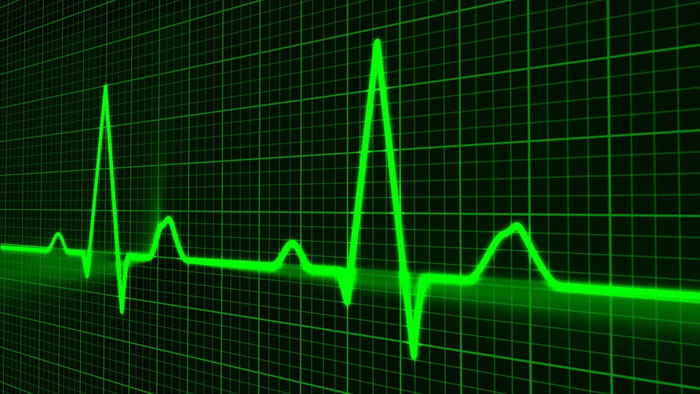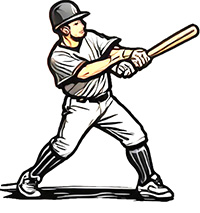Maximum heart rate is the highest number of heart beats per minute (bpm) when exercising maximally. This is best measured during a maximal exercise test, in which the body is pushed to its physical limit. For athletes it is handy to measure your maximum heart rate as you can use the percentage of maximum heart rate as an indicator of exercise intensity. Many exercise programs use the percentage heart rate level to set training loads. See Heart Rate during exercise.
Measuring Maximum Heart Rate
Heart rate will increase gradually as workload increases, up to the maximum possible. As the heart rate will begin to decrease as soon as exercise is completed, maximum heart rate is best measured using a heart rate monitor or electro-cardiogram (EEG) corresponding to the final moments before competition of exercise. Maximum heart rate can be recorded during a maximal aerobic fitness test, though any maximal exercise should be able to elicit a maximum heart rate, as long as the exercise workload is gradually increased.
 heart rate measurement
heart rate measurementCalculating Maximum Heart Rate
The most accurate way to determine your maximum heart rate is to measure it directly. If that is not possible, you can also calculate using several available formulas. The calculated figures are only estimates, you can expect you actual maximum heart rate to be somewhere within 10-20 beats of this, resulting in non-optimal intensities if you are using this heart rate estimate for setting training programs. See this Max HR table for a quick lookup of your maximum heart rate using these formula.
- The most commonly used formula is to take your age (in years) away from 220. For example, if you are 34, your predicted max heart rate is 186 bpm (220 - 34). The formula was derived from a range of maximum heart rate studies in 1970 by William Haskell and Samuel Fox.
- A study in 2001 with healthy adults found a more accurate formula of 208 - 0.7 x Age (from Tanaka, H., Monahan, K.D., & Seals, D.R. (2001). Age-predicted maximal heart rate revisited. J Am Coll Cardiol. Jan;37(1):153-6.)
Related Pages
- Heart rate Maximizer — an aerobic fitness test
- Table of maximum heart rate related to age
- All about Heart Rate and Exercise
- Measuring Heart Rate — how to measure using the manual and monitor methods.
- Resting Heart Rate — are you rested and recovered?
- A discussion of What is a normal heart rate?
- Exercise Heart Rate — a measure of intensity and fitness
- See also the table of Heart Rate training ranges
- Heart Rate Monitors for sale, also ECG Monitors
Old Comments
Commenting is closed on this page, though you can read some previous comments below which may answer some of your questions.
- Ogg (2013)
So I guess when I reach 220 years of age, my heart stops beating entirely? :-D - Anonymous ogg (2015)
Yes, yes it does - Brhighn Cheebherb Anonymous (2015)
2 years later, this guy was probably 118 when he posted this. - Pk (2017)
I am 27 and my resting heart rate is 76 is that okay? - JapanCustomTours (2016)
Like a lot of measures, it is a guide only. Mostly I've been a desk-job person, but when I did a proper VO2max test (I think when I was 36) I would max in the low 180's and now I'm almost 50 it is the same. But I also have a high lactate threshold and can exercise aerobically at 175bpm (I still run slowly). - Ian Molyneaux (2016)
The rate at which your heart returns to your normal range after exercise is just as important. Someone who is reasonably fit should expect to be back in the high-end of normal resting pulse after resting for 5 mins after 30-45 mins of moderate exercise. - Carmen Saturno (2016)
18 years old, as I'm laying here about to go to sleep, my hr is at 66 bpm. When I'm exercising it goes up to 190 bpm at the highest, well that's the highest I let it go, even though I can apparently go up to roughly 200 bpm. I'm not necessarily in shape though... lol - Phil Hayman (2015)
54 and just done 18 minutes on a concept 2 rowing machine my heart rate went up to 179 in the last 500m. Resting heart rate around 56. I am starting to row competitively again after 3 years away from it, not sure if I am overdoing it? I feel OK. - Dave sykes Phil Hayman (2016)
seems great. go for it. - Joyce Phil Hayman (2015)
My resting pulse is 54-58 and when I run 10.5 km/h for 30 min I am on 169 that is NOT 90% of my max (40 y.o Female) I ran beeptest 9.5 in 35 degrees heat outside - Alan59 (2015)
56 and my MHR on Spin bike 170 bpm . - George (2015)
My wake up is around 70 bpm and when going to the gym usually 110 ish but once warmed up on the treadmill can be hitting 195 ....age 61 - Clay (2015)
I don't think the max rate formula is very accurate at all. For example, I am out of shape due to a very serious injury that has permanently disabled me (along with a good dose of laziness). Depending on who you ask, I am from 30 to 80 pounds overweight and due to my injuries, I find it difficult to do most aerobic activity. I can use some elliptical machines to simulate kind of sort of running. Other than that, I do nothing aerobic. So...I am 56 years old, fat, crippled, and out of shape. Yet my heart rate often exceeds 170 when I do aerobics. I often keep it above 160 for ten to twenty minutes (as long as I can gut it out). Even then, I am not breathing exceptionally heavy and, so far, I am still alive. Haven't felt any heart pains. Haven't dropped down dead. I am pretty sure my heart beat exceeds 180 at points though the machines I use won't measure that high. Why am I not dead?? I could see it if I was a great athlete in top physical condition. But I am not. Never have been. I am pretty sure I am no freak case. Has this formula ever really been tested?? Or is it some government formula that is as useless as most of the other ones they use? - Tami leske clay (2017)
and oops this was on the wrong site. fudge my head is not in game today at all - Tami leske clay (2017)
the most* not a more - Tami leske clay (2017)
There was research done and a more accurate formula to find your MHR is 208 - (0.7 x age) - Christopher Cheng Sum Yan (2015)
I am 9 years old, is my maximum heart rate 211 bpm or what? - Kay AKrl (2015)
"As the heart rate will begin to decrease as soon as exercise is completed . . ." Not always. Where oxygen deprivation has been achieved (ex. as in sprinting or HIIT) the heart rate will actually rise briefly before slowly coming back down. - Christi (2015)
I am a women with a 113 palse rate not exercising. Is that high.I am 54years old - Kay AKrl Christi (2015)
That seems high, but this is definitely a question for your doctor, not for a forum on the internet. Perhaps consider an EKG, a stress test, or a fitness test. (I am 66 and just took my pulse after sitting quietly for 1/2 hour - 64 bpm.) - Where does the 220 figure from which we subtract the age come from? I have come across it when trying to calculate the maximum heart rate. (from Samson, Feb 2013) - I'm not sure, I guess it is just the figure that gives the most accurate results.
- 220 is your heart rate when you are born you max goes down every year (from Marcelle, Mar 2013)


 Current Events
Current Events